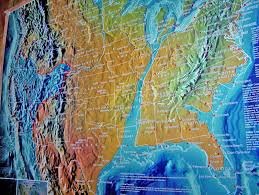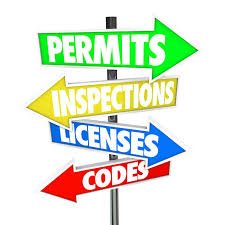Your input requested

If you are not familiar with this series, I encourage you to find the links at the end of this post and explore Parts 1-5 to get caught up. This innovative farm will not only be the coolest place to live on the planet, but will also be 95% self sufficient in its economy, power generation and food production.
Bovine Excrement and Rotating Oscillators

Disclaimer – Hey, who knows. I don’t. I’d like to choose the safest place within reason. Some of these scenarios are legitimate concerns and some of course are highly speculative. I’m just using these scenarios to help define the safest location we can find while staying within the confines of reason.

This covers most of the scenarios in one major event. I don’t think I will have to make a #2 with this one covering the bases. Let us all take a moment to drop into the rabbit hole of deep dark paranoia.
It is said: The magnetic pull of planet X coming into our part of space will disrupt the north and south pole alignment. Since we are a spinning top, there is a huge bulge of water located at the equator and once the earth is tilted suddenly during a pole shift of say 30 degrees, that wall of water will slosh around quite a bit and probably wash over most land under 1000 feet if not higher, so keep your surfboards waxed and ready.
It is said: The ring of fire is going to light up during a planet X flyby. We actually don’t even need a planet X flyby to accomplish this. We are already seeing major activity and lot’s of news articles about what would happen to north America should Yellowstone blow, so the west, in fact is quite an unstable place, given the fault lines in California and the volcanic potential in the northwest.
It is said: Any major volcanic activity will fill the skies with dust for decades and diminish plant and ocean life in a major way. I’m starting to think about building an arc at this point. Maybe a few more wind turbines and less solar panels anyway.

It is said: The New Madrid fault line will be triggered and open up the entire Mississippi river basin into a seaway instead of a river and open up the Gulf of Mexico to the Great Lakes. Hum, the west is starting to look mighty cut off. Pre-staging some barges east of Memphis could make for a wise business decision!
It is said: That some coastal areas will sink beneath the oceans and new lands will rise out of the oceans. Sounds like some incredible real estate ventures for lots of “Our Farms” may be on the horizon.
It is said: That nuclear power plants will meltdown once they lose the ability to operate back up pumps in cataclysmic scenario. Presented without comment.
Ok, that’s about enough of that rabbit hole. The main point I want to make at this juncture is that the planet is fragile and there are known danger areas without even considering this mystical elusive planet X. Look what happened to Houston, New Orleans, Puerto Rico and the damage with Mexico City’s recent earthquake. This is why the altitude that I have specified for our locations is to be at least 1200 feet above sea level.
Below is a wish list of what we are looking for as a minimum requirements.
Attributes

- Approximately 640 acres of rich fertile virgin land with a good mix of field and forest.
- Clean aquifer source plus a creek, lake or pond.
- Moderate climate with limited snowfall.
- Altitude between 1200 – 2300 ft.
- No nuclear plants within at least 100 miles downwind.
- No chemical plants within 50 miles.
- Close to a regional, national or international airport.
- Low population density area.
- Friendly open minded local folks.
- Located in a State and a county that is open to mixed agriculture & residential zoning, open to non traditional interactions of the farm, residences, business and the community.
Zoning, Statutes, Codes, Regulations and the State

Perfect Choices
Being near an airport will be a big consideration. Since our business model requires a constant influx of customers for the conference center and concert venues, our guests would probably be more inclined to frequent our facility if they didn’t have to commute for hours into the boondocks. Since “Our Farm” will be attracting Wedding venues, Mountain Bike Racing Tournaments, Nexus Conferences, Tedx talks, Bluegrass Festivals, Art festivals, Medical Conferences, Corporate Conferences, Rock concerts and so forth; the location would ideally be desired to be close to some major metropolitan areas.
So here is the basic formula so far, =(Near Airport) + ( Altitude >1200 ft., <3000 ft.) + (clean aquifer) + (no nukes) + (good clean countryside).
Ok, Help us out here folks! We need some good sources on some good locations. What about out west? Are there any “safe” spots out there? What is your favorite area for an “Our Farm” location? Do you have any inside information on local politics or any further intel on any of these areas? Let us know!
My areas
Below is my personal review of the Southeast and some South-central areas if you want to give this a look, otherwise please help us out here in choosing the perfect location. Please comment or send an email from the link at the end.

Greenville-Spartanburg Airport
- There is a good amount of higher altitude land above the areas of Greenville and Spartanburg, South Carolina that qualifies, however if you go too far east around Clemson, there is a huge nuclear facility located about 10 miles to the north. Greenville is a great little town with a hopping downtown and this area is in close proximity to Charlotte and my home area of Atlanta.
Asheville Regional Airport
- This area of western North Carolina is quite promising and might just hold a perfect location around Transylvania or Henderson Counties. With the French Broad River for rafting, Sierra Nevada tap room next to the airport, the Blue Ridge Parkway meandering through the area, I could not think of a better choice. The area north of Asheville around Mars Hill is also a consideration.
Chattanooga Airport
- Chattanooga opens up a wide area of potential. You have the north Georgia Appalachian area around Fannin and Gilmer Counties and you have the area east of Chattanooga and running points north and south up on to the Cumberland Plateau in between I-24 and I-40. This area is very undeveloped and would make a perfect spot for the farm and would also be close to Nashville.
Knoxville Airport
Heading southwest from Knoxville’s airport is a town called Maryville with highway 321 running the back way into the Pigeon Forge & Galinburg area. The areas of Townsend and Wears Valley in between are some of the most beautiful valley and mountain areas in such a close proximity of an urban area that I have seen. Knoxville has come a long way but is still riddled with industrial pollution and of course ALCOA aluminum is located in Maryville; however being in Wears Valley seems another world away. The commercialism of Dollyworld and Pigeon Forge kind of turns me off to the general area but a nice valley tucked away just in the right spot could work.
An honorable mention is the area due north of Knoxville from Rocky Top and Norris east to Corryton and areas north of these locales on up into Union County.
Roanoke Airport
- There is just endless opportunities abounding from I-81 going south from Roanoke all the way past Abingdon on either side of the interstate. This is tremendously beautiful area. If you have never taken the time to stop in Saltville, it’s worth the stop. Lots of cool history and great people. And if you have your bicycles along, find Damascus on the map and take the Virginia Creeper trail for an afternoon downhill run. This area is not near any real big metropolitan areas but close enough to Raleigh-Durham, Greensboro, Winston-Salem, Knoxville and Charlotte to be a viable location.
Little Rock Airport
- Just southwest of Little Rock lies the town of Hot Springs, Arkansas. This starts the area of the Ouachita Mountains that stretch from Hot Springs to Mena and on further into Oklahoma. This area looks promising.
Springfield Missouri Airport
- Just south of Springfield Missouri, is an area bordered by I-44, I-49, Hwy 65 and the Arkansas State Line. This area qualifies.
Well, if you made it with me this far, thanks and I hope you will comment or send an email with some of your ideas for a good location.

If you are new to these writings, the basic core principle and the benefit focus within this series is to:
“Increase the joy in our lives by allowing much more free time for ourselves, our family and our friends, to get back in touch with nature and to become a more resilient people via food, energy and economic independence”.
The nucleus of these efforts is called “Our Farm”.
If you are not familiar with this series, I recommend starting with Part 1 and then go to Parts 2 thru 5 to gather a better understanding with the “Our Farm” concept.
Here are the links: | Part 1 | Part 2 | Part 3 | Part 4 | Part 5 |
Thanks,
Evan
This is good, you're bringing contact between the rubber & the road now and actively soliciting reader participation. With this post you begin to address some of the practical considerations.
With this you will see some come & some go as different locations are suggested and analyzed for suitability. I suspect many will not be interested in "their farm" being in the USA, while others will refuse to live outside of the USA. Nevertheless, this post provides the community an opportunity to register their interest in the "our farm" concept.
As for myself the Springfield location sounds good :)
Anyway, glad you're here writing about this and hope you see the perfect investor / partner show up to make this vision a reality.
Downvoting a post can decrease pending rewards and make it less visible. Common reasons:
Submit
I did weigh considerably a South or Central America locations, especially the area north of Cordoba, Argentina; however, my business model does not work where I can't sell venues for the conference center or the others. Being near areas like Raleigh-Durham, Charlotte, Atlanta, etc. will be keys to the success. A different model would have to be implemented for an out of the country location. Maybe a eco-tourist farm,etc. or one maybe for deap sea fishing in Costa Rica.
On a different note, I've noticed some tech issues with Steemit lately. Any inside scoop? I have not seen any good responses to my posts vs. the number of followers. Are there any known issues with the code and also can DDoS mess with this and votes? I have had all sorts of strange anomalies on top of straight out blunt issues.
Anyway, thanks for the positive response!
Downvoting a post can decrease pending rewards and make it less visible. Common reasons:
Submit
I too have noticed the performance issues and I have also seen a number of people commenting on this in the Telegram channel. DDoS is one possible cause. I myself don't have a clue what the cause is, nor have I seen anything from others that have identified the cause.
Downvoting a post can decrease pending rewards and make it less visible. Common reasons:
Submit
People have been looking for the "perfect place" on earth for centuries. Each area has it's own faults (sometimes literally -- earthquake wise).
If earthquakes don't scare you, live on the coast
But if earthquakes DO scare you, then move inland, as long as you don't mind tornadoes
But what if you are scared by both earthquakes AND tornadoes? Then don't move anywhere, because one of the two is always possible.
Good luck on your search... :)
I know how difficult it can be.
Downvoting a post can decrease pending rewards and make it less visible. Common reasons:
Submit
The underground structures that are mandated for this community are all earthquake proof and tornado proof and virtually fireproof, so that does not bother me too much. I would not want to be on the fault line but the coast is a different story. From hurricanes showing up, flooding or even tidal waves, I'm sticking to above 1200 feet. Less humidity and prettier scenery. The hills give character to the land and also allow the hillside building spots for the perfect underground structure! So far, that sweet spot in northern georgia, western north carolina, eastern tennessee and western virginia come about as close to the perfect spot as I can find. I know there are some great spots up north but I just am not acclimated to the cold!
Thanks
Downvoting a post can decrease pending rewards and make it less visible. Common reasons:
Submit